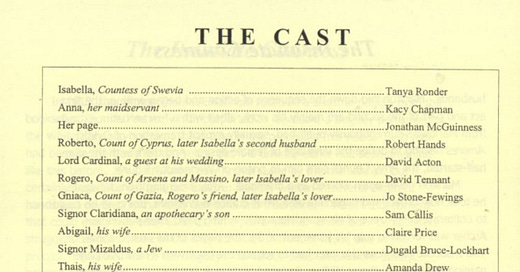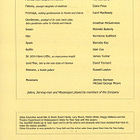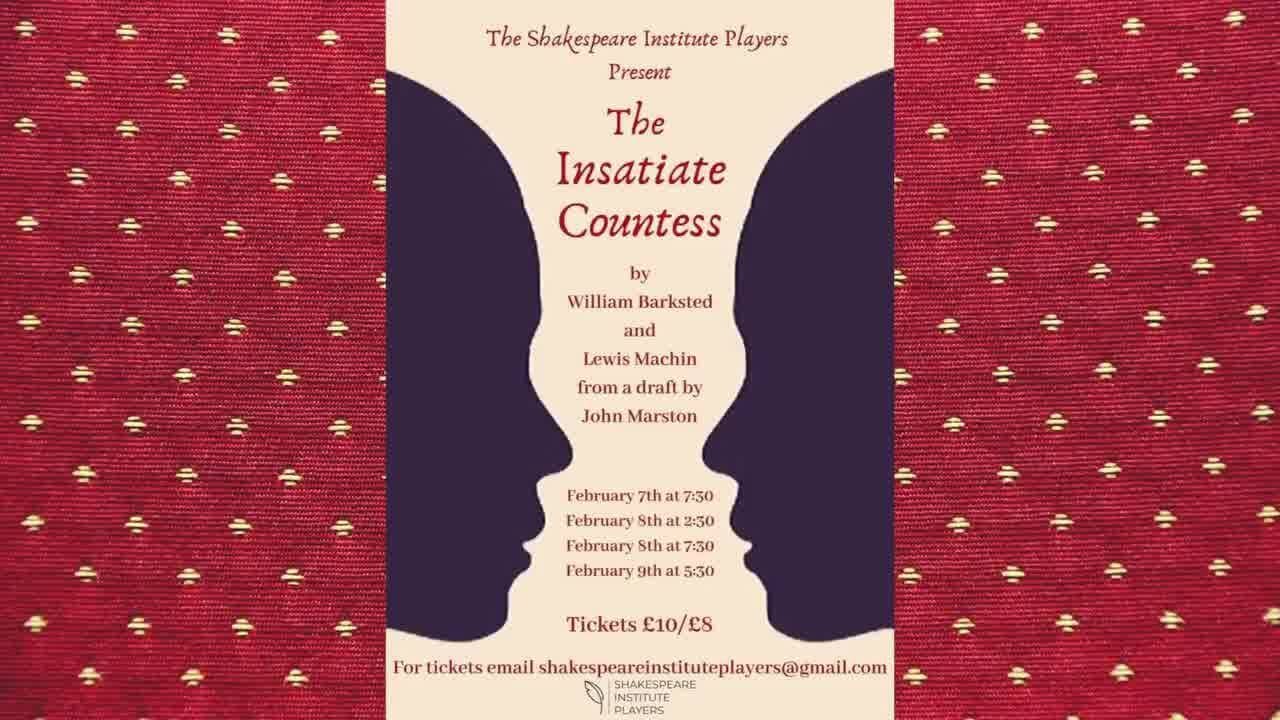The 'Read Not Dead' Series, Pt. 4: David Tennant, Staged Readings at The Globe, and 'The Insatiate Countess' (2002)
And here, my friends, is the fulfillment of my promise - the last of the four threads about David Tennant and his involvement with the Read Not Dead (heretofore called RND) project at Shakespeare’s Globe. This will concern the second of the two unattributed plays David did for RND and is the last of the two never-before-talked-about-in-the-fandom plays he did with them.
If you feel like you need to catch up on the first three parts and understand a little bit of the history behind the Read Not Dead project before continuing with this one, go here for the first part about Edward III:
Here for the second part about The Fleer:
And here for the third part about What You Will:
Then come on back!
With all those links out of the way, we can continue with the last of the four plays - and the second one which I am certain is new to the David Tennant fandom.
When we last left our intrepid Scots thespian David T., he’d just wrapped up a staged reading of John Marston’s What You Will for the RND. He had managed to fit the reading in between the April-May 2002 and the July-August 2002 runs of his then-current hit play, Lobby Hero.
Between then and November of 2002 (the next time he stepped on the Bear Gardens stage to do another RND staged reading) David had been seen on a number of other projects. In 2002 alone, he’d been featured on an episode of Foyle’s War and in the short film Nine And ½ Minutes by Josh Appignanesi. Lobby Hero had got him noticed; his star was on the rise. He was getting busier (and he’d get busier still when his next two plays, 2003’s The Pillowman and 2005’s Look Back In Anger, as well as his seminal role as Peter Carlisle in 2004’s Blackpool, would catapult him into the public consciousness.) And - of course! - Doctor Who was also barreling down the pipe. But all that was still in his future.
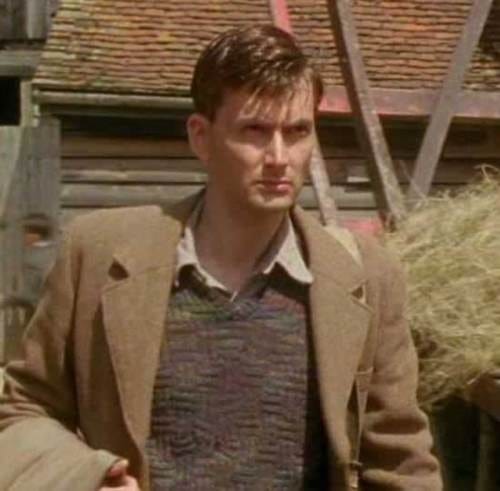
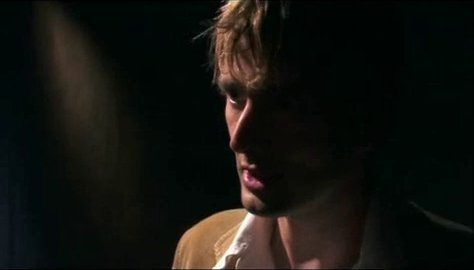
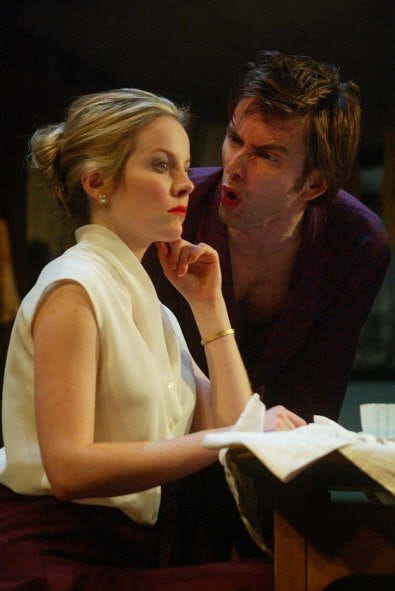
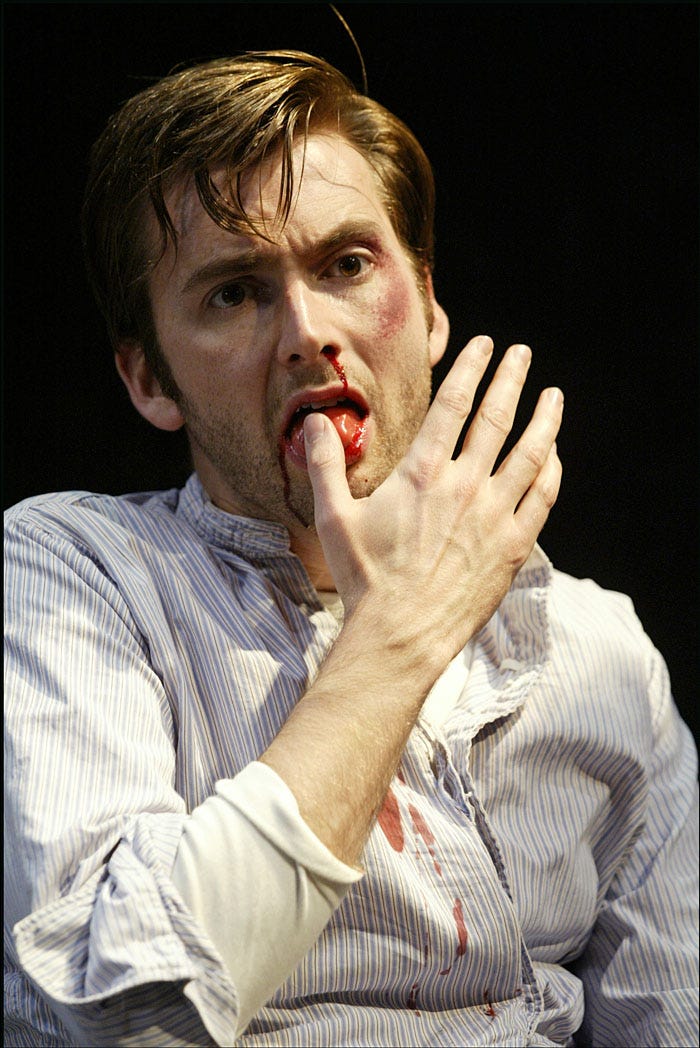
No, for right now it is Sunday, 10 November 2002, and we’re along for the ride as David arrives at the Globe for the morning’s balls to the wall rehearsal of the Tony Bell-directed John Marston play, The Insatiate Countess, before getting on stage at the Bear Gardens Theatre. We don’t know whether David signed up for this one (or any of them, for that matter)! If so, he received his script a few days before, but if he was drafted at the last minute he would’ve received his script only hours before taking the stage that afternoon! Either way, he was surely up for it.
In the previous thread on What You Will I spoke about playwright John Marston. But this play - The Insatiate Countess - is a mystery wrapped in an enigma. Marston started writing the tragicomedy in 1608 and had the first act and part of the second written before - oops! - he was thrown in jail. Following Marston’s imprisonment, the play languished for a while, and when Marston was released and took holy orders he wanted NO part of finishing it. Two other writers took it upon themselves to finish the draft: actor William Barksted, and Lewis Machin. This multi-authored approach caused significant issues - the other authors juggled the names of the characters, for one - and suffice to say, it really isn’t a “finished” play in the way we’d envision the meaning of the term. It finally got published in 1613.
Scholars have had a lot to say about the play’s provenance, and there are many different editions of it. It’s also widely studied because it’s been acknowledged as highly unusual for its time - since it shows female characters driven explicitly by sexual desire.
According to UK Theatre Web, The Insatiate Countess is “a play dripping with innuendo from its very first lines [as] sexual obsession leads to murder as Isabella, widowed Countess of Swevia, wastes little time in remarrying before running off with another man. And then another. And yet another.” And, as is usual for plays of this period, there is also a second comic plot going on. “Meanwhile, two new brides coolly frustrate their husbands’ wife-swapping attempts at revenge.”
So…if the uniqueness of The Insatiate Countess has intrigued you and you’d like to read (one version of) a full text of the play, you can find it here:
https://www.gutenberg.org/files/46312/46312-h/46312-h.htm#Page_125
That link will take you to the version of the play used during the RND performance reading.
But back to that staged reading. When RND staged it in November 2002, they stated “it was the first performance of the complete play - tragic and comic plots together - since the 17th Century.” David played the role of Rogero, Count of Arsena and Massino, later Isabella’s lover.
The actors all donated their time to the project for free.
And here (again thanks to the Globe Archives) is the cast list from the digitized programme for the 10 November 2002 performance:
In February 2020, the Shakespeare Institute Players (their student theatre company out of Stratford) performed The Insatiate Countess, by William Barkstead and Lewis Machin, from a draft by John Marston.
There appears to be no full version available online, but here is a short snippet of it if you’d like to take a listen (the link is in the caption):
And with that, my patient readers, we wrap up the history of David’s four interactions with the Shakespeare’s Globe Read Not Dead project, which brings dead plays to life. While David did only four plays, the Read Not Dead project continues to this day.
One last postscript: the performance of The Insatiate Countess was recorded (as were all four of David’s staged readings with RND) though I haven’t listened to it, and sadly, the archive notes the start of the audio is cut off. You can listen to the recording of the performance and others from the series, as the recordings are archived in the Globe Archive and Library in London. Access to the archive is available by appointment only, for professionals and academics affiliated with institutions of higher education.
I’ve listened to Edward III and The Fleer, but have yet to hear What You Will or The Insatiate Countess. On my next trip to London, I’ll be sure to make time to listen to both - even though some of the audio is missing on both of those, that’s all right. I’ll listen to them anyway!
I hope you all have enjoyed this series, and traipsing with me down the memory lane of David Tennant’s works at the RND.
‘Til next time!


